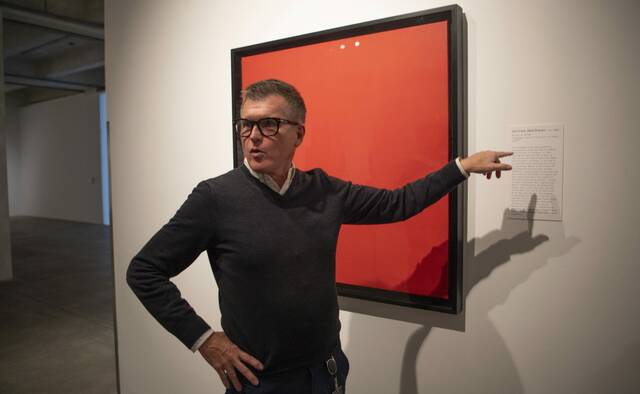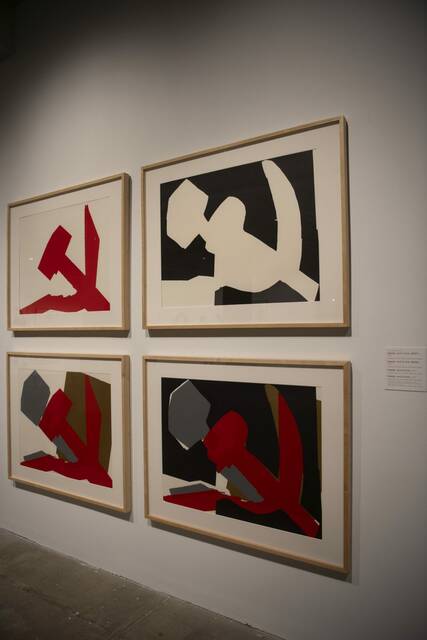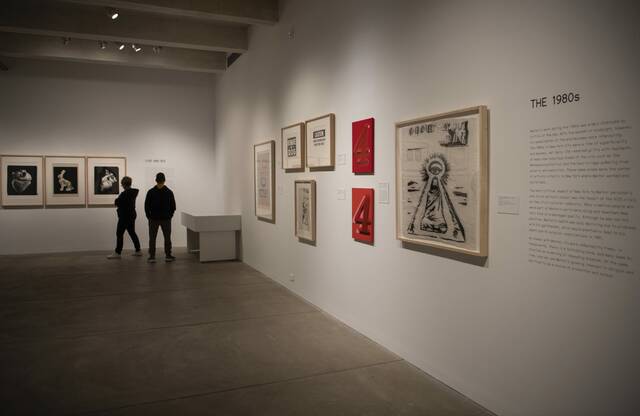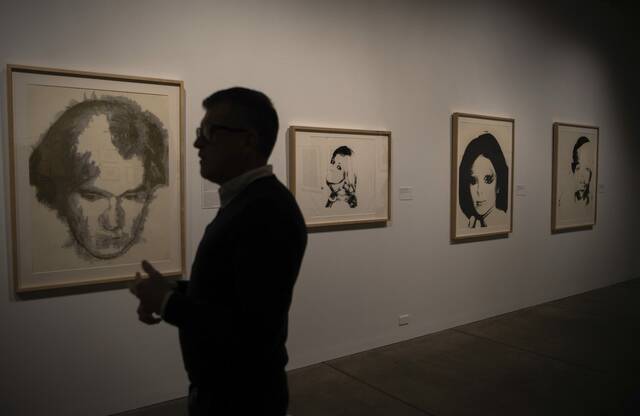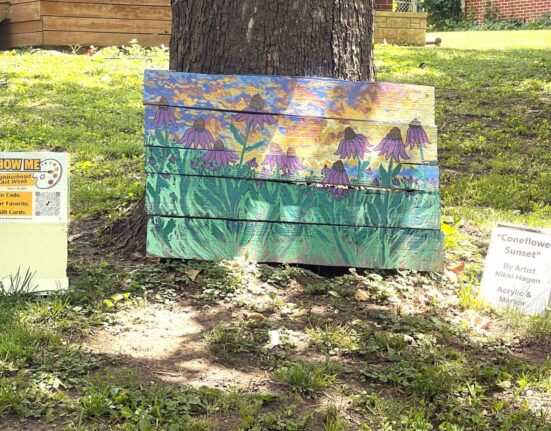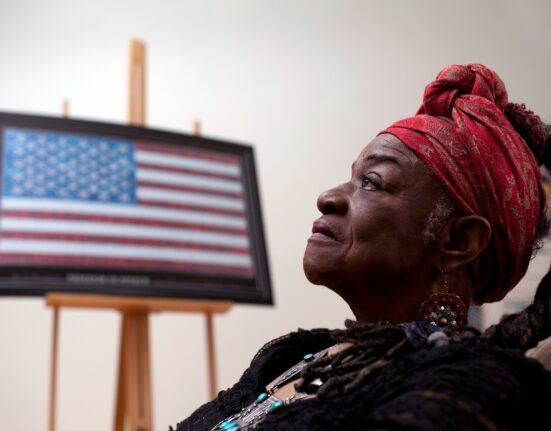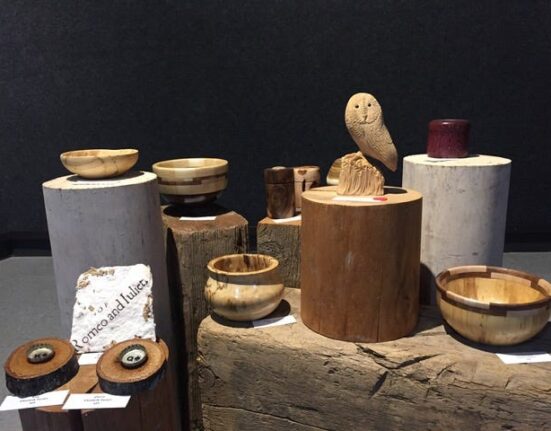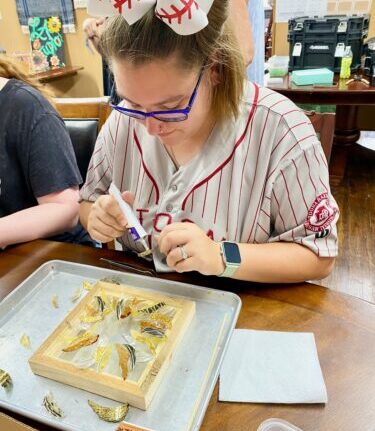Despite having an entire museum dedicated to his works, there is a collection of 10,000 works by Pittsburgh pop artist Andy Warhol that have never been in the public eye.
People can now see more than 60 of those pieces on display in “Unseen: Permanent Collection Works” at the Andy Warhol Museum on the North Side through March 4.
“It is our responsibility as a museum to show our collection,” Patrick Moore, director of The Warhol and curator of the exhibition, said during a media preview.
He said the museum spent a year and a half taking a “deep dive” into every piece of its collection — which is how they found the ones that had never been seen.
Moore collaborated on the project with Matt Gray, The Warhol’s director of archives; Signe Watson, an independent researcher; and The Warhol collections and exhibition department.
The museum holds the largest collection of Warhol’s artworks and archival materials.
“The Warhol staff works every day with an extraordinary collection that continues to surprise and confound,” Moore said. “’Unseen’ is an opportunity for the museum to delve into areas of the collection that are new even to us. These are objects that are both aesthetically beautiful and that have stories to tell. We’re proud to share them with the public for the first time.”
There were various reasons as to why the works had never been displayed, Moore said. It might be Warhol didn’t think those particular pieces were valued at the time. Some appear to be unfinished — although Warhol created artwork that might not look like it was finished, but to him it was.
“He left things incomplete,” Moore said. “He left mistakes and left it up to the viewer to decide on their meaning.”
Others were possibly too sexually explicit or revealing for their time. Some of those works are on display are in an adults-only area that’s sectioned off from the rest of the exhibit.
The art shows that Warhol yearned for romantic love, Moore said. His lover, Jon Gould, who was a vice president at Paramount, died in 1986 from complications relating to AIDS.
“There is also some sadness in some of these pieces, which were sold privately because of their sexual nature,” Moore said.
“People are more open and accepting of sexuality,” Moore said. ”It has been an evolution. We are more comfortable with our sexuality as a museum.”
The first piece in the exhibit is owned by Irving Blum, one of Warhol’s early art dealers. It is called Andy Warhol, Red “Blank”, ca. 1963. Warhol used the term blank to describe monochromatic canvases. It arrived in a crate that also contained 10 “Silver Liz” paintings (Elizabeth Taylor).
Known as a portraitist, there are several portraits, including one of him. Some are distorted. One is of a woman without a mouth and another has double registers of the silk screen. A portrait of O.J. Simpson is among the pieces on display for the first time.
Warhol might be suggesting that suggest that celebrity and wealth can warp an individual to the point of becoming grotesque, according to press materials.
“That one (without the mouth) has kind of a ghostly quality to it,” Moore said.
For the self-portrait, Moore said Warhol most likely wanted to portray his fragility. He was concerned about his health after being shot by Valerie Solanas, who thought he was stealing her play manuscript. He spent months in the hospital. Warhol died in 1987 of cardiac arrest suffered after gallbladder surgery, a procedure that he had delayed for several years due to his fear of hospitals.
In his work, Warhol utilized every medium from painting to sculpture to film. He produced 600 screen tests, a series of short, silent black-and-white film portraits, and 1 million feet of film.
When asked to pose, subjects were lit and Warhol filmed them with his stationary 16mm Bolex camera on silent, black-and-white, 100-foot rolls of film.
Two of those are part of the exhibit. They are preserved in collaboration with the Museum of Modern Art in New York City.
The research revealed many previously unknown facts, which have raised both additional awareness of the collection and of Warhol’s practices and intentions, Moore said. These findings are part of the exhibition.
“The fact that these works have never been shown reflects the enormity of the museum’s collection, and the complexity of Warhol’s legacy,” Moore said. “It also shows that there is more to learn about Andy Warhol.”
“Unseen: Permanent Collection Works” is on display until March 4. The Andy Warhol Museum is located at 117 Sandusky St., North Side.
Details: warhol.org
JoAnne Klimovich Harrop is a Tribune-Review staff writer. You can contact JoAnne by email at jharrop@triblive.com or via Twitter .

